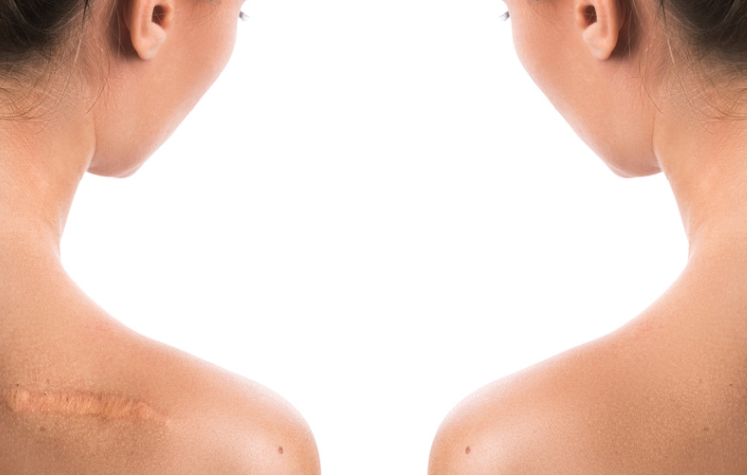Scars, permanent marks left behind by injuries or surgeries, can be a source of aesthetic concern and sometimes even functional limitations. In the quest to improve scar appearance and health, various non-invasive approaches have emerged, and vibrating massage is one such technique gaining attention. Let’s delve into the potential benefits of vibrating massage for scar tissue, explore the science behind it, and consider some factors before undergoing this type of treatment.
Understanding Vibrating Massage: A Mechanical Approach to Healing
Vibrating massage, also known as mechanical massage or vibration therapy, applies rhythmic pulses of pressure to the targeted tissue. These vibrations are believed to stimulate various physiological processes that may promote healing and improve scar tissue health. Here’s a look at some possible mechanisms:
- Increased blood flow: The pulsating pressure from the vibrations may promote vasodilation, which is the widening of blood vessels. This can lead to increased blood flow to the treatment area, delivering essential oxygen and nutrients for optimal healing and cellular function.
- Enhanced lymphatic drainage: Vibrations may stimulate the lymphatic system, which is responsible for removing waste products and fluid buildup. Improved lymphatic drainage can help reduce inflammation and promote healing.
- Breakdown of adhesions: Scar tissue can sometimes form adhesions, which are abnormal connections between tissues. Vibrating massage may help break down these adhesions, potentially improving flexibility and range of motion in the affected area.
While the exact mechanisms are still being investigated, vibrating massage is used for various therapeutic applications, including pain management, muscle relaxation, and even bone healing.
Vibrating Massage for Scars: Promising Potential Needs Further Exploration
The use of vibrating massage for scar management is a relatively new area of exploration. While initial findings suggest potential benefits, more research is warranted to definitively establish its efficacy.
A 2019 study published in the journal Dermatology Research and Practice investigated the effects of vibration therapy on post-burn scars. The study found that vibration therapy combined with standard scar therapy resulted in a statistically significant improvement in scar vascularity and pliability compared to standard therapy alone.
It’s important to acknowledge that research on vibrating massage for scar tissue is limited. More extensive clinical trials are needed to determine optimal treatment parameters, such as duration, frequency, and force of the vibrations.
Potential Benefits of Vibrating Massage for Scar Tissue
Despite the need for further research, vibrating massage offers several potential advantages for scar treatment:
- Non-invasive and painless: Vibrating massage is a non-invasive approach and is generally well-tolerated, with minimal to no discomfort associated with the treatment.
- Improved blood flow and lymphatic drainage: By potentially increasing blood flow and lymphatic drainage, vibrating massage may promote healing and reduce inflammation.
- Reduced scar adhesions: Vibrations may help break down scar tissue adhesions, potentially improving flexibility and range of motion.
Conclusion
Vibrating massage offers a promising, non-invasive option for improving the appearance, flexibility, and overall health of scar tissue. While research is ongoing, the potential benefits and safety profile make it an attractive option for those seeking to minimize the impact of scars. It is important to conduct your due diligence and understand the current state of research, so you can make an informed decision about whether vibrating massage therapy is the right approach for your scar management journey.
Image: Canva Pro

